Nurses Narratives: E B Dickson
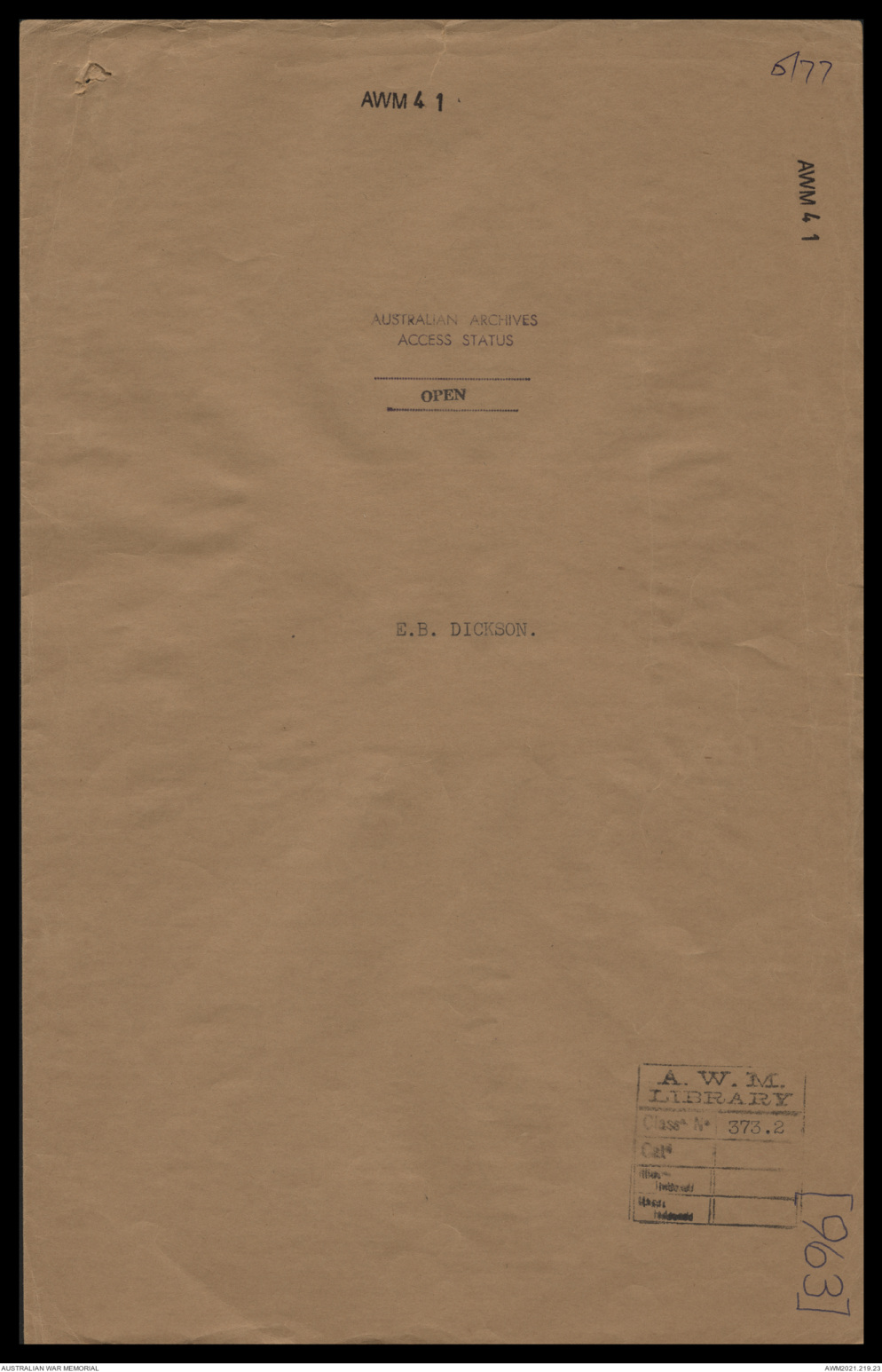
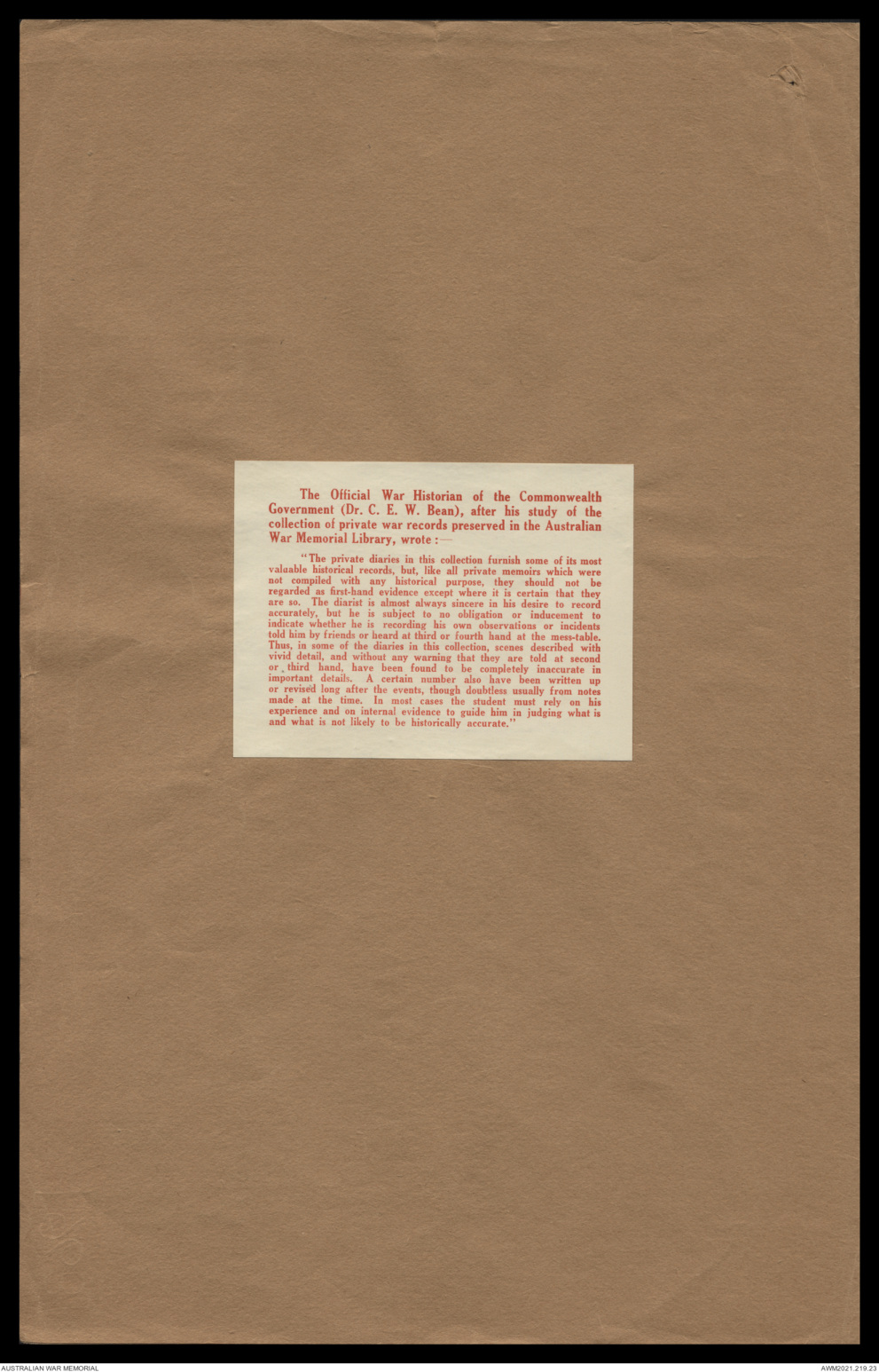
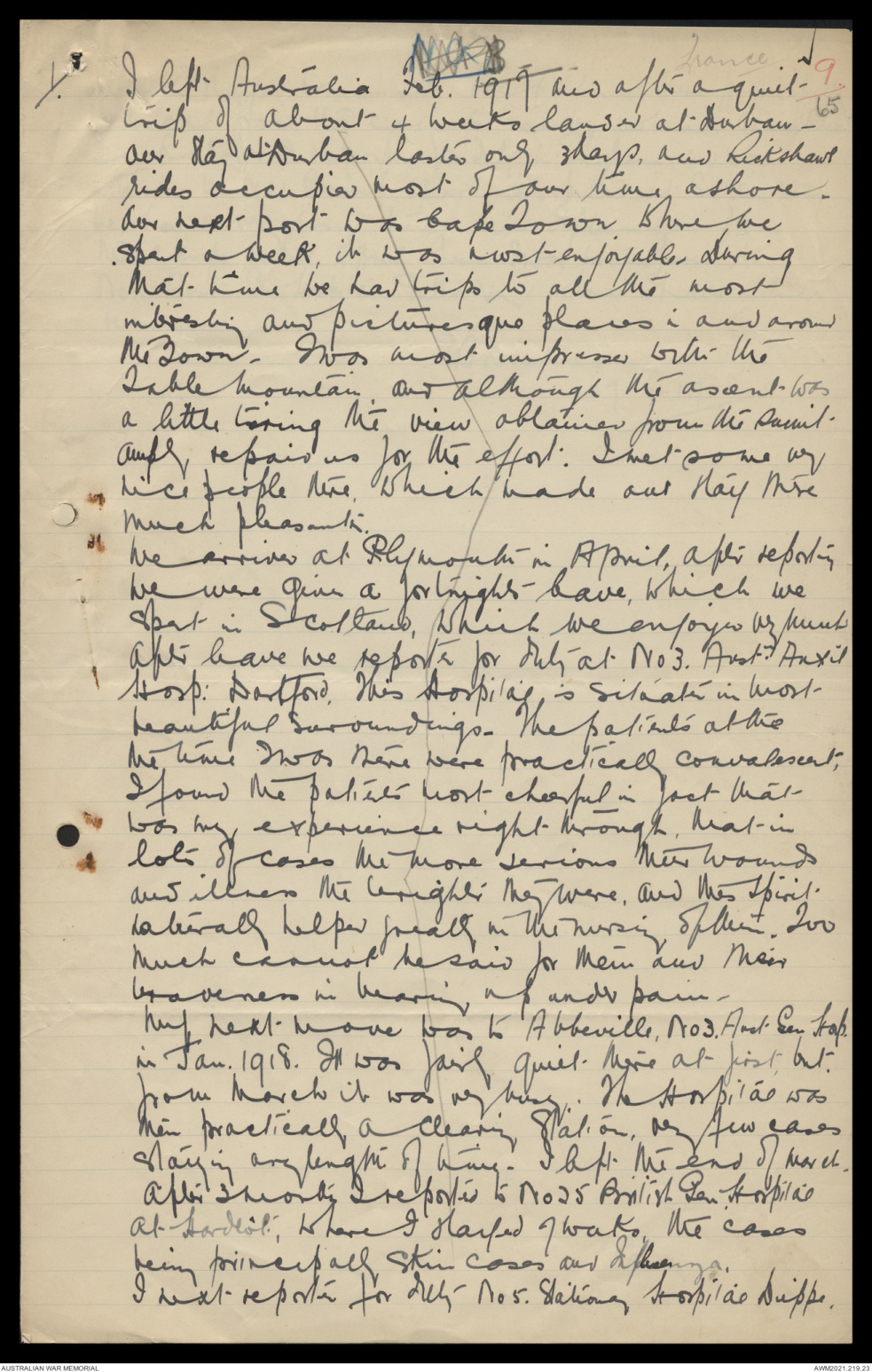
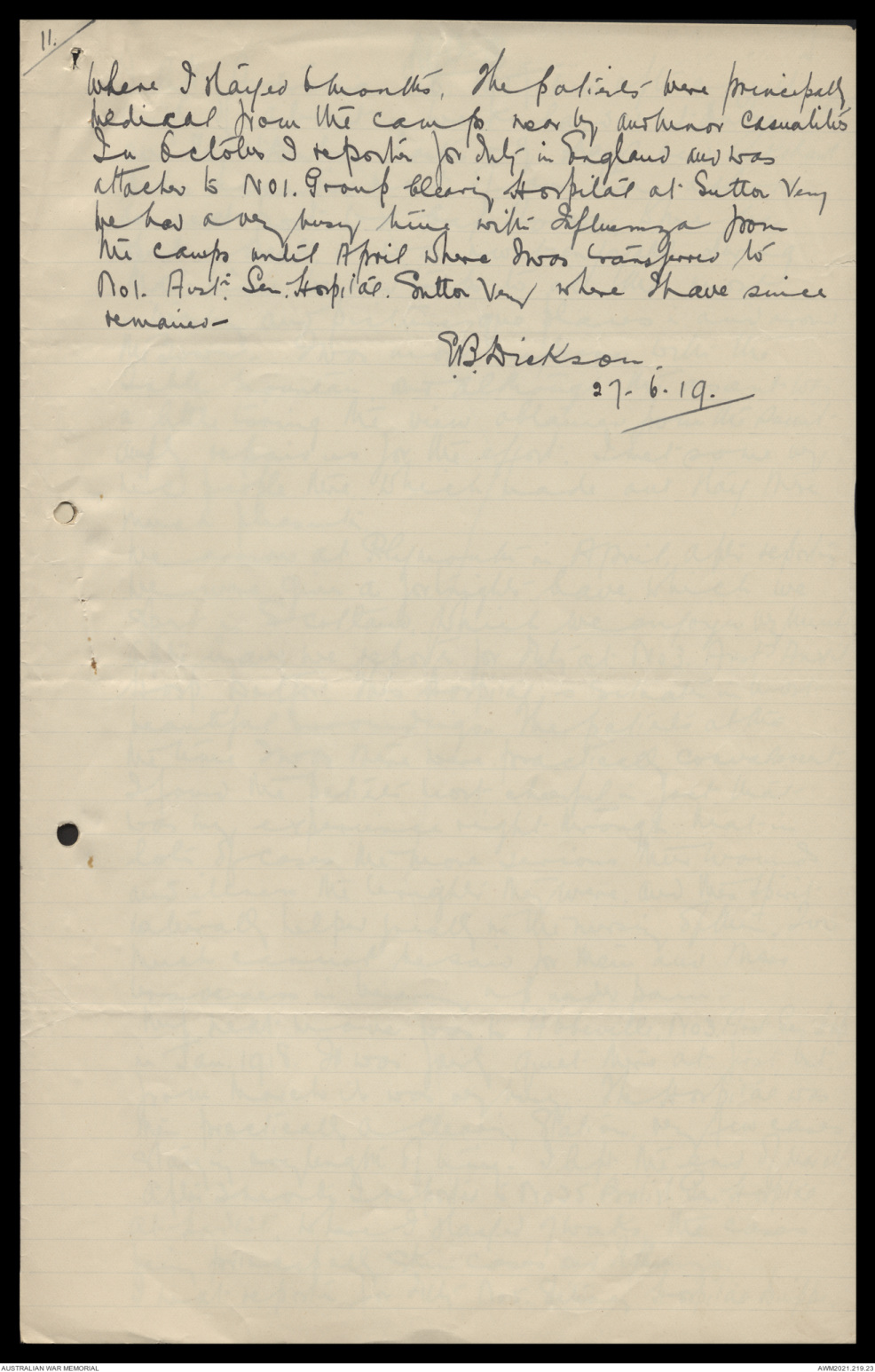
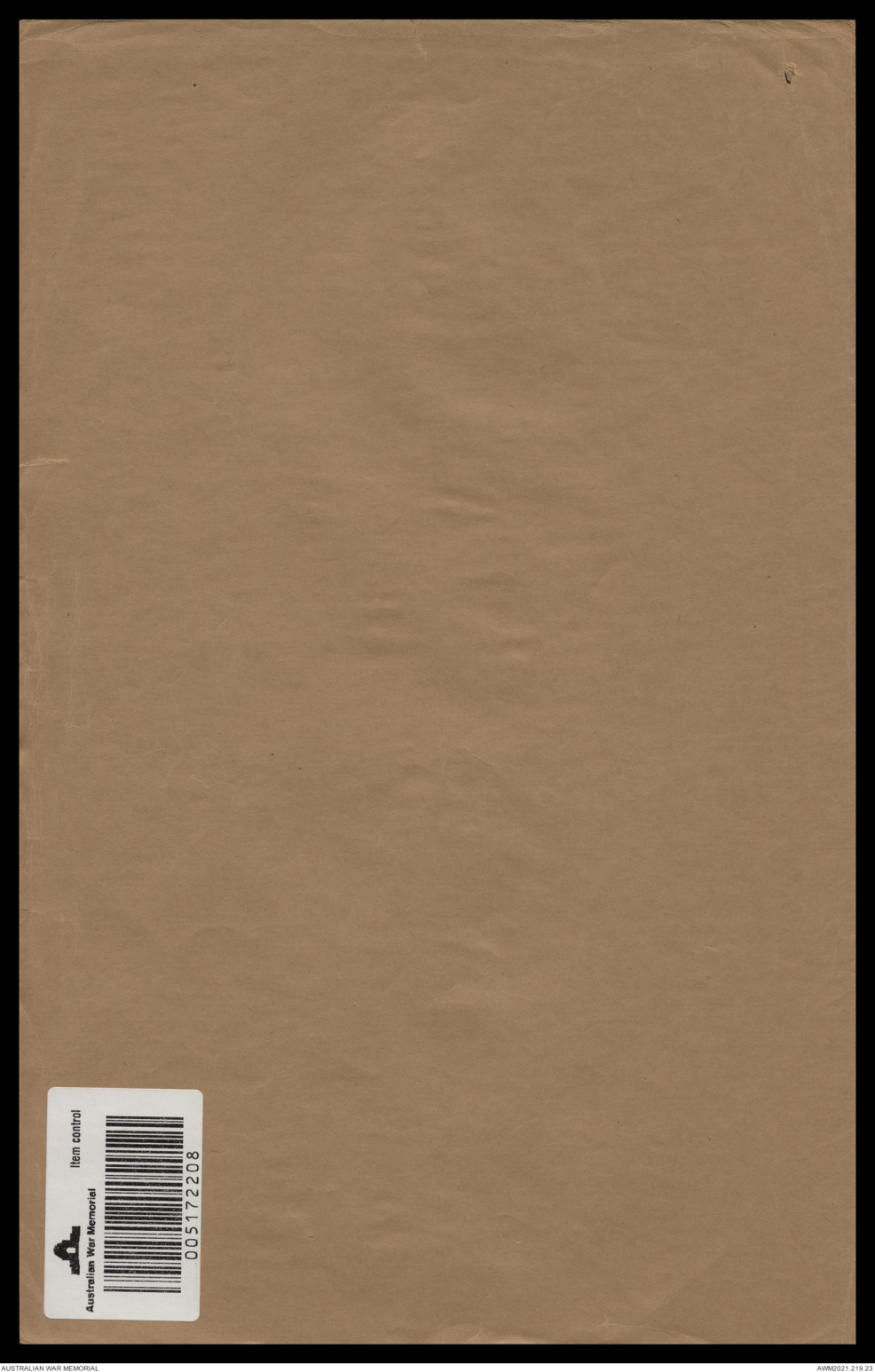
AWM 4 1 5/77
AUSTRALIAN ARCHIVES
ACCESS STATUS
OPEN
E.B.DICKSON
A.W.M.
LIBRARY
CLASS No. 373.2
[963]
The Official War Historian of the Commonwealth
Government (Dr. C. E. W. Bean), after his study of the
collection of private war records preserved in the Australian
War Memorial Library, wrote:-
"The private diaries in this collection furnish some of its most
valuable historical records, but, like all private memoirs which were
not compiled with any historical purpose, they should not be
regarded as first-hand evidence except where it is certain that they
are so. The diarist is almost always sincere in his desire to record
accurately, but he is subject to no obligation or inducement to
indicate whether he is recording his own observations or incidents
told him by friends or heard at third or fourth hand at the mess-table.
Thus, in some of the diaries in this collection, scenes described with
vivid detail, and without any warning that they are told at second
or third hand, have been found to be completely inaccurate in
important details. A certain number also have been written up
or revised long after the events, though doubtless usually from notes
made at the time. In most cases the student must rely on his
experience and on internal evidence to guide him in judging what is
and what is not likely to be historically accurate".
I/
France
I left Australia Feb. 1919 and after a quiet
trip of about 4 weeks landed at Durban
our stay at Durban lasted only 3 days, and Rickshaw
rides occupied most of our time ashore.
Our next port was Cape Town where we
spent a week, it was most enjoyable. During
that time we had trips to all the most
interesting and picturesque places in and around
the Town. I was most impressed with the
Table Mountain, and although the ascent was
a little tiring the view obtained from the summit
amply repaid us for the effort. I met some very
nice people there which made our stay there
much pleasanter.
We arrived at Plymouth in April, after reporting
we were given a fortnight's leave, which we
spent in Scotland, which we enjoyed very much.
After leave we reported for duty at No 3. Aust Auxil
Hosp: Dartford. This Hospital is situated in most
beautiful surroundings. The patients at the
the time I was there were practically convalescent,
I found the patients most cheerful in fact that
was my experience right through, that in
lots of cases the more serious their wounds
and illness the brighter they were, and this spirit
naturally helped greatly in the nursing operation. Too
much cannot be said for them and their
braveness in bearing up under pain.
My next move was to Abbeville, No3. Aust Gen Hosp.
in Jan. 1918. It was fairly quiet there at first, but.
from March it was very busy. The Hospital was
then practically a clearing station, very few cases
staying any length of time. I left the end of March.
After 3 months I reported to No 25 British Gen. Hospital
at Hardlot, where I stayed 7 weeks, the cases
being principally skin cases and influenza.
I next reported for duty No 5. Stationary Hospital Dieppe,
II/
where I stayed 6 months. The patients were principally
medical from the camp nearby and minor casualties.
In October I reported for duty in England and was
attached to No1. Group Clearing Hospital at Sutton Veny
We had a very busy time with influenza from
the camps until April where I was transferred to
No 1. Austn. Serv. Hospital. Sutton Veny where I have since
remained.
E. B. Dickson
27-6.19.
 Jacqueline Kennedy
Jacqueline KennedyThis transcription item is now locked to you for editing. To release the lock either Save your changes or Cancel.
This lock will be automatically released after 60 minutes of inactivity.